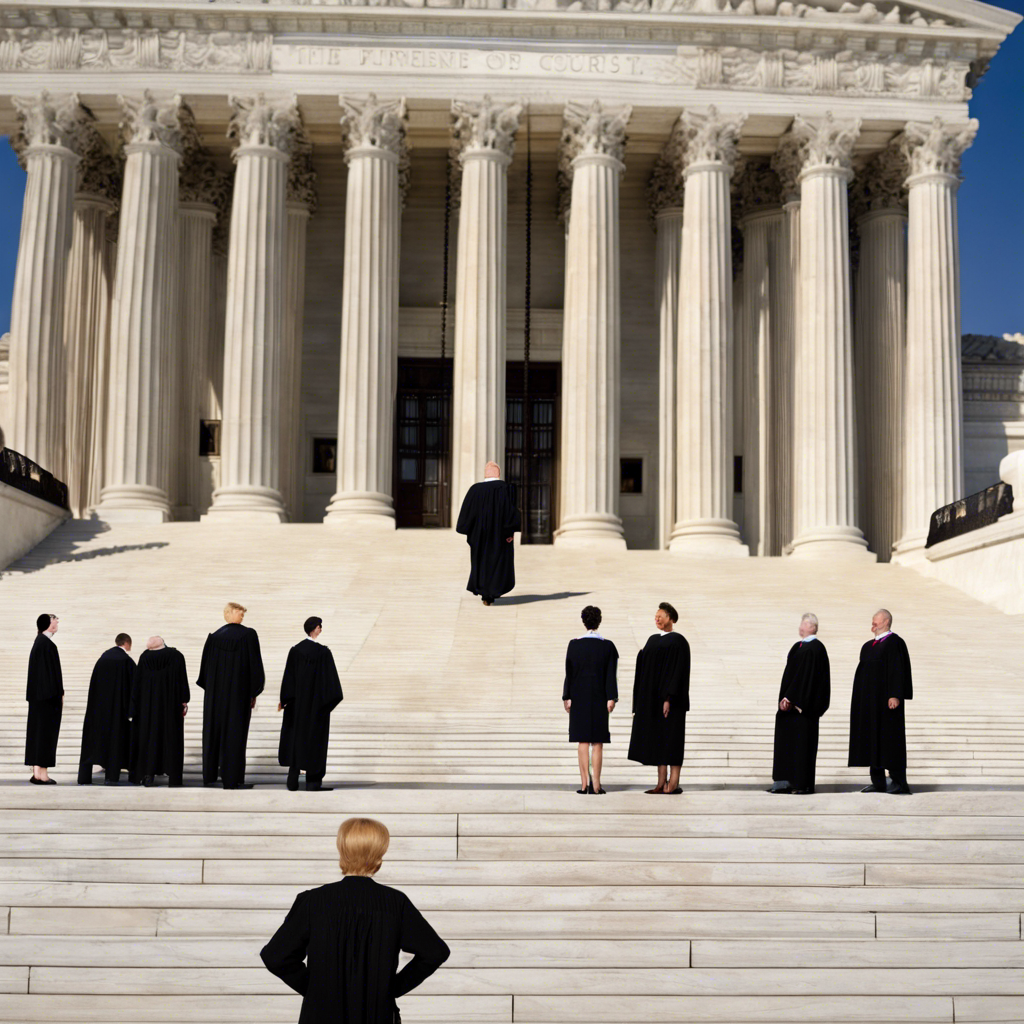Supreme Court Rejects Fast-Track Request for Trump’s Immunity Case

The Supreme Court’s decision to reject special counsel Jack Smith’s request to expedite arguments on Donald Trump’s immunity from federal prosecution is likely to delay the trial and gives Trump a major victory.
In a blow to special counsel Jack Smith, the Supreme Court has rejected his request to fast-track arguments on whether former President Donald Trump has immunity from federal prosecution for alleged crimes committed while in office. The court’s decision is expected to delay the trial and is a significant victory for Trump, who has been using delay tactics to avoid facing charges. The case will now proceed through the DC Circuit Court of Appeals before potentially reaching the Supreme Court.
Unusual Request Rejected
Smith’s request to skip the federal appeals court and have the Supreme Court decide on the issue of immunity was an extraordinary gamble. The court did not provide an explanation for its decision, but it is a setback for Smith, who wanted a quick resolution to the fundamental issue in his election subversion criminal case against Trump. Both sides still have the option to appeal to the Supreme Court after the DC Circuit Court of Appeals makes a ruling.
Trial Delayed
The DC Circuit Court of Appeals has already scheduled oral arguments for January 9 to review the immunity issue. The trial for election subversion is set to begin in March. The court’s decision to let the appeals court go first raises questions about whether the trial will be put on hold pending further review from the Supreme Court. It is still possible that the trial will proceed as scheduled, but the likelihood has diminished.
Trump’s Argument
Trump’s attorneys argued that the special counsel was rushing to decide the issues without proper caution. They emphasized that the case is in the midst of a political dispute and should be handled with care. Trump himself continued to assert his immunity from federal prosecution, stating on social media that he has the right and duty to investigate and speak on the alleged rigging and theft of the 2020 Presidential Election.
Challenging the Immunity Ruling
Trump’s legal team had previously asked the appeals court to review the immunity ruling made by District Judge Tanya Chutkan, who is overseeing the criminal case. Chutkan had rejected arguments that the indictment should be thrown out because Trump was acting in his official capacity as president to ensure election integrity. The judge has paused all procedural deadlines in the case while the appeal is ongoing.
Bypassing the Appeals Court
Smith’s team sought to bypass the appeals court’s review by having the Supreme Court intervene now. They argued that the resolution of the immunity question is pivotal to whether Trump will stand trial, which is scheduled to begin in less than three months. They pointed to a Watergate-era case where the Supreme Court also skipped the appeals court to quickly decide on a case involving then-President Richard Nixon’s claims of presidential privilege.
Double Jeopardy Question
Prosecutors have also asked the court to decide whether Trump is protected by double jeopardy. Trump’s defense lawyers argue that he cannot be criminally tried for the same alleged actions because he was acquitted by the Senate during his impeachment trial.
Conclusion: The Supreme Court’s rejection of the fast-track request for Trump’s immunity case is a significant setback for special counsel Jack Smith. The decision to let the appeals court review the issue first adds uncertainty to the timing of the trial. While Trump continues to assert his immunity from federal prosecution, the legal battles surrounding his alleged crimes are far from over. The outcome of the immunity question and the double jeopardy issue will have far-reaching implications for Trump’s future legal proceedings.

